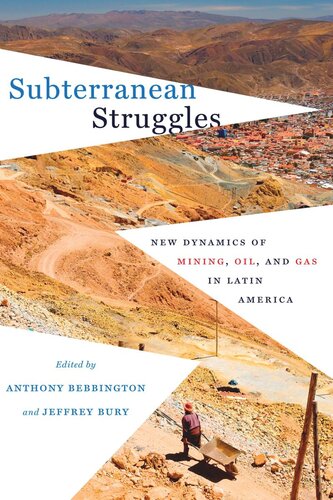

Most ebook files are in PDF format, so you can easily read them using various software such as Foxit Reader or directly on the Google Chrome browser.
Some ebook files are released by publishers in other formats such as .awz, .mobi, .epub, .fb2, etc. You may need to install specific software to read these formats on mobile/PC, such as Calibre.
Please read the tutorial at this link: https://ebookbell.com/faq
We offer FREE conversion to the popular formats you request; however, this may take some time. Therefore, right after payment, please email us, and we will try to provide the service as quickly as possible.
For some exceptional file formats or broken links (if any), please refrain from opening any disputes. Instead, email us first, and we will try to assist within a maximum of 6 hours.
EbookBell Team

4.8
74 reviewsOver the past two decades, the extraction of nonrenewable resources in Latin America has given rise to many forms of struggle, particularly among disadvantaged populations. The first analytical collection to combine geographical and political ecological approaches to the post-1990s changes in Latin America’s extractive economy, Subterranean Struggles closely examines the factors driving this expansion and the sociopolitical, environmental, and political economic consequences it has wrought. In this analysis, more than a dozen experts explore the many facets of struggles surrounding extraction, from protests in the vicinity of extractive operations to the everyday efforts of excluded residents who try to adapt their livelihoods while industries profoundly impact their lived spaces. The book explores the implications of extractive industry for ideas of nature, region, and nation; “resource nationalism” and environmental governance; conservation, territory, and indigenous livelihoods in the Amazon and Andes; everyday life and livelihood in areas affected by small- and large-scale mining alike; and overall patterns of social mobilization across the region. Arguing that such struggles are an integral part of the new extractive economy in Latin America, the authors document the increasingly conflictive character of these interactions, raising important challenges for theory, for policy, and for social research methodologies. Featuring works by social and natural science authors, this collection offers a broad synthesis of the dynamics of extractive industry whose relevance stretches to regions beyond Latin America.